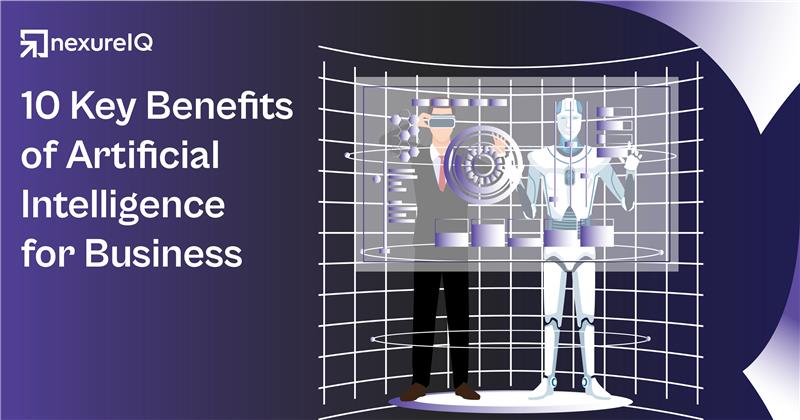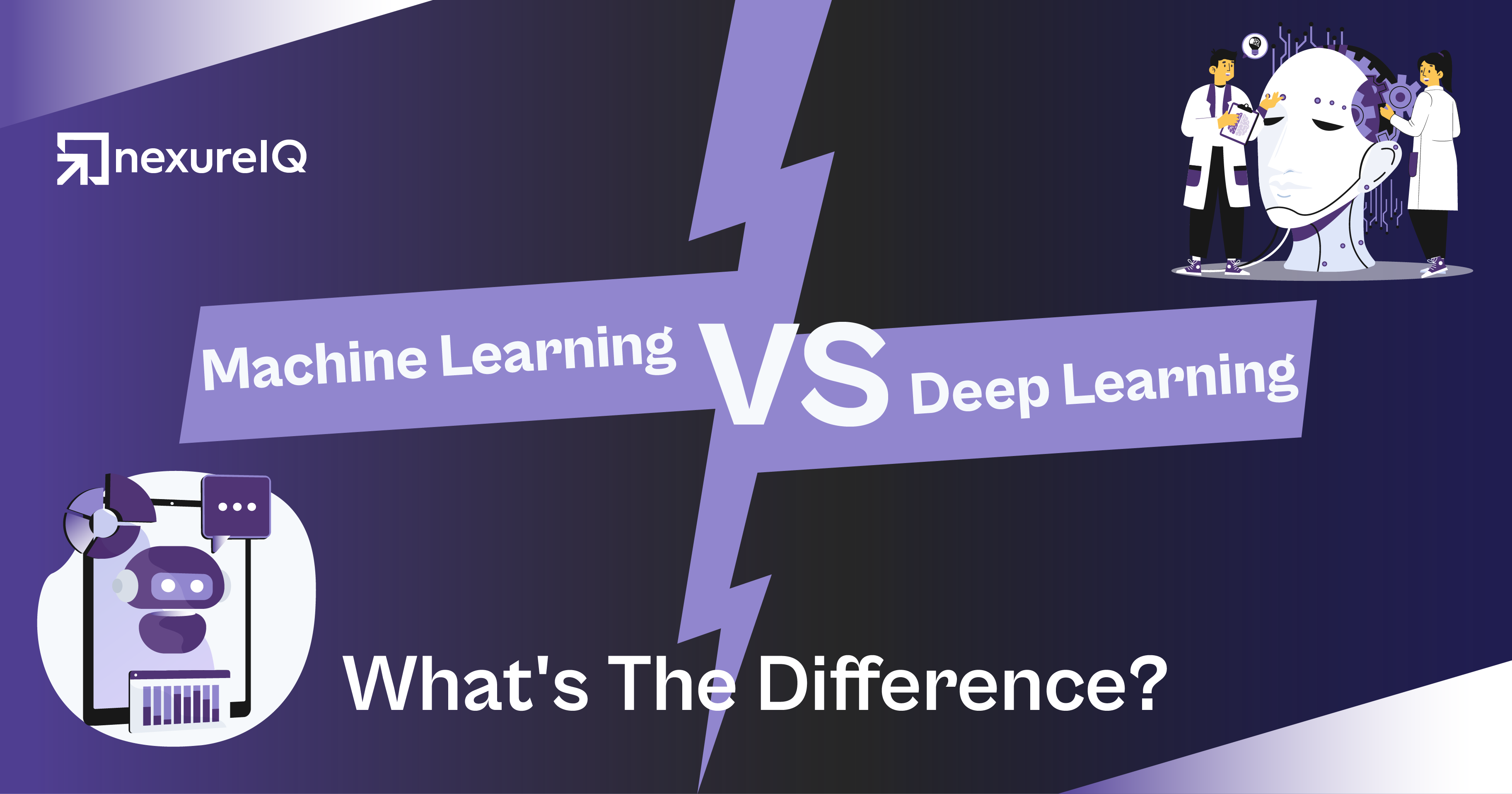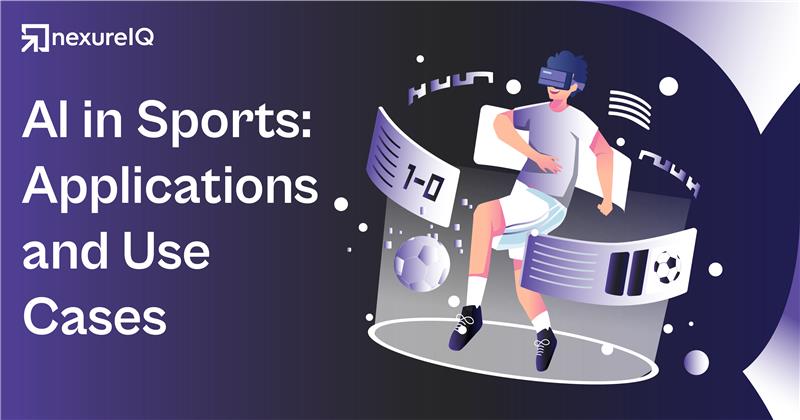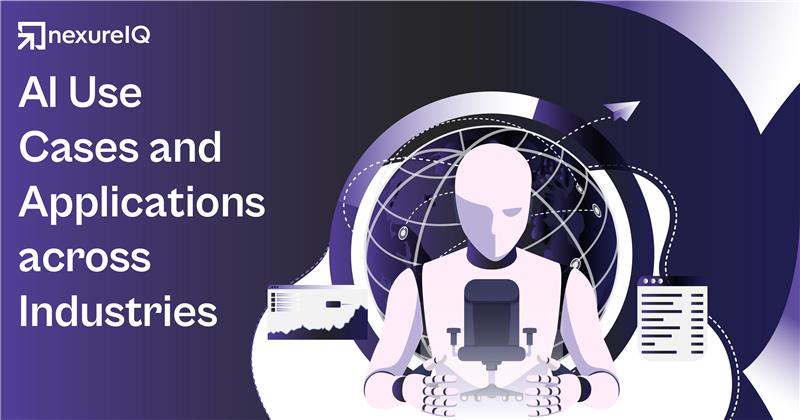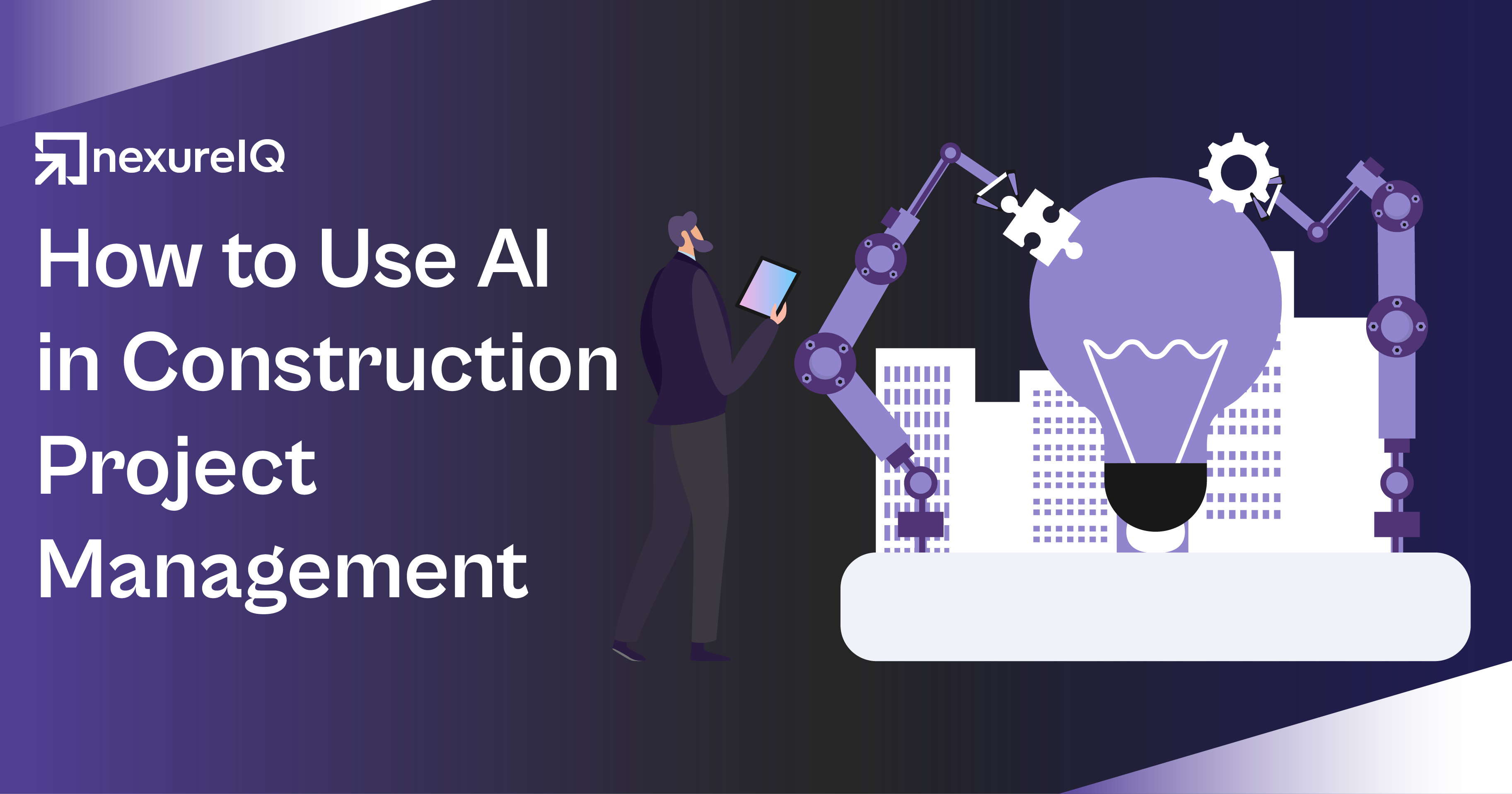Artificial intelligence has emerged as a major change in business operations by delivering organizations new approaches to improve their workflow processes and boost productivity and deliver improved customer satisfaction. Various organizations at every enterprise level embrace AI-powered solutions that allow them to improve operational efficiency and decrease expenses while securing better market performance.
In this blog, we will explore the benefits of AI in business and why it has become a game-changer for modern enterprises. Business owners at every operational level must understand how AI technology transforms their corporate activities.
We’ll also discuss the advantages of artificial intelligence in business, its impact and how different industries are implementing AI to drive innovation. If you’re wondering, “What are the benefits of using AI in business?”, you’ll find the answers right here!
AI in Business
Business AI stands as a technology concept which Business World understands for its growing recognition. AI represents machine capabilities to mimic human thinking through devices which perform learning analysis and make decided choices.
Business organizations utilize AI technology to automate operations as well as deliver customer service and market products and oversee finances and other applications. With rapid advancements in AI technology, companies are realizing the benefits of AI in business and are incorporating it into their daily operations.
AI has become a popular choice since it processes large quantities of information swiftly making data-based business decisions possible. AI tools allow businesses to simplify recurring operations as well as strengthen customer dialogue while optimizing operational productivity. Companies investing in AI development services or hiring an AI development company are experiencing tremendous growth and innovation.
The popular interest surrounding AI stems from its capability to forecast buyer patterns. With AI tools for business analytics, organizations can analyze customer preferences, improve marketing strategies and personalize user experiences. The service improves both customer satisfaction and business profitability.
As more companies start using AI for business, AI has been reshaping industries, making operations smooth and future advancements. The growing need for AI expertise has also led to the rise of generative AI development services, helping businesses create smarter AI applications.
Top 10 Benefits of AI in Business
Business operations have transformed with artificial intelligence because it improves efficiency, customer experiences and generates new developments. The benefits of AI in business are becoming more evident as companies across industries adopt AI solutions. AI is transforming technology because of its execution of repetitive work and customer analysis. But how can AI help businesses and what are the advantages of artificial intelligence in business? Let’s explore the top benefits of AI in business and understand how it’s shaping the future of industries worldwide.
1. Improved Efficiency and Productivity
One of the biggest benefits of AI in business is its ability to improve efficiency and productivity. With AI tools, organizations complete regular tasks and allow employees to handle other important tasks. Businesses increase their operational speed and increase productivity.
How does AI improve efficiency?
The automation tools operate AI systems for data entry, customer support and inventory management tasks. With Chatbot, customers can obtain 24/7 service. Similarly, AI tools for business analytics process large amounts of data, providing valuable insights for decision-making.
Artificial intelligence in businesses is also used for future maintenance in industries like manufacturing, preventing costly equipment failures before they happen.
AI implementation allows organizations to increase operational performance and procedures to boost productivity. Companies need AI to maintain their presence in highly competitive market.
2. Improved Customer Experience
One of key advantages of artificial intelligence in business is its role in improving customer experience. Businesses can connect with their customers with AI solutions having chatbots.
How can AI help businesses better understand their customers? AI uses online tracking records to build custom algorithms that guide specific promotion plans. The business platforms of Amazon and Netflix depend on AI algorithms to generate user-specific product recommendations and content suggestions.
AI tools for online business allow analysis to identify customers’ emotional states based on their online review, interaction messages and social media comments. The analysis of customer data allows businesses to solve customer problems in advance.
AI chatbots offer instant responses to customer inquiries to minimizing customer wait time and boost satisfaction. Multiple inquiries can be handled by chatbots which make them a cost-effective option for customer support. With AI tools for online business, companies can improve customer engagement, retention rates and deliver exceptional service experiences. The ability to use AI technology for customer needs simultaneously allows businesses to excel in the market.
3. Data-Driven Decision Making
AI empowers businesses with data-driven decision-making capabilities, making it one of most significant benefits of using artificial intelligence. Artificial Intelligence allows organizations to process large data collections rapidly so they create better strategic business choices.
AI tools for business analytics help organizations uncover hidden patterns, market trends, and customer preferences. Using historical data analysis AI generates precise sales predictions allowing businesses to optimize their pricing routines and forecast upcoming customer requirements. Business organizations make their strategic choices using factual data through this approach.
How do companies use AI for decision-making? Retail businesses use AI systems for improving inventory management by selecting the proper products through their predicted demand calculations. Financial institutions utilize AI analytics systems to evaluate risks while identifying fraudulent activities in their operations. AI systems assist healthcare providers in disease assessment and treatment prescription through the evaluation of medical data.
Through AI analytics businesses gain better operational performance while lowering risks and identifying development prospects. The importance of AI in decision-making cannot be overstated, as it allows businesses to stay competitive in an increasingly data-driven world.
4. Cost Reduction and Operational Savings
AI implementation provides businesses with major cost-saving benefits as its main effect. Businesses cut operational expenses through AI automation of repetitive tasks which used to consume significant work hours.
The implementation of AI-powered chatbots and virtual assistants allows businesses to cut their workforce costs while delivering excellent service support because these solutions replace large customer service teams. Predictive maintenance powered by artificial intelligence protects manufacturing equipment from failures which leads to decreased maintenance expenditures alongside fewer operational stoppages.
How does AI help businesses save money? The supply chain operations reach improved efficiency through AI which predicts market demand variations while streamlining logistics. Companies using AI development services can also automate repetitive tasks like invoice processing, payroll management and fraud detection, significantly cutting down administrative costs.
Businesses utilize AI-driven analytics through marketing budget optimization that locates their best performing advertising channels. Strategic business focus on top-performing initiatives allows organizations to reach maximum investment return levels and eliminate unproductive spending.
Organizations that want to boost financial efficiency and profitability must implement AI because it results in large-scale cost efficiency benefits in the future.
5. AI in Finance and Risk Management
The benefits of AI in finance are transforming the industry, making financial services more secure, efficient and customer-friendly. AI-produced risk management systems allow banks together with financial institutions to identify fraud schemes as well as evaluate creditworthiness and make investments more effective.
How does AI help businesses in finance? AI algorithms that analyze market patterns alongside customer conduct allow businesses to make superior financial choices. Robo-advisors leverage automated systems to generate investment advice through a combination of financial objectives and sensitivity to risk.
Artificial Intelligence impact on business is particularly evident in fraud detection. AI conducts real-time transaction monitoring to track abnormal activities which helps prevent security risks. AI-run chatbots within banks allow customers to get financial help while this minimizes the work required from human support staff.
AI technology helps organizations stay compliant by performing automatic document checks while at the same time decreasing technical errors in financial document creation. AI allows financial operations because it processes large financial datasets rapidly while maintaining exactness making it essential for bank institutions.
By integrating AI tools for business analytics, financial institutions can minimize risks, improve decision-making and improve customer trust.
6. AI for Marketing and Sales
One of the key advantages of artificial intelligence in business is its impact on marketing and sales. Artificial intelligence tools help organizations discover customer wishes while improving their promotional strategies and increasing their transaction numbers.
Using AI for business, companies can analyze customer data to create personalized marketing messages. Email marketing solutions with artificial intelligence capabilities deliver customized product suggestions by tracking client transaction records combined with their website activity.
How can AI be used in the workplace for sales? The implementation of AI-powered chatbots performs lead generation and handles customer inquiries which guarantees businesses will capture all potential sales opportunities. AI-powered customer relationship management systems assess customer communications to recommend effective approaches for sales personnel to follow up with clients.
The digital advertising industry depends on AI technology for its operations. Google Ads uses AI to direct advertising campaigns toward the most suitable audience to obtain superior results and minimise resource allocations.
By using AI development company solutions, businesses can improve their marketing strategies, improve customer engagement and increase sales revenue.
7. AI in Human Resources and Recruitment
Human resources operate efficiently because AI systems help recruitment while managing workers and conducting employee performance assessments. Artificial intelligence tools do automatic resume assessment to decrease human resources selection time for candidates.
How can AI be used in the workplace for HR? AI chatbots perform preliminary candidate screening to evaluate skill levels and appropriateness after which they reschedule human interaction meetings. Intelligent analytics systems employed by HR departments track employee performance and identify skill deficiencies which leads to recommendations for individualized training programs.
Organizations implement AI systems to develop their practices of diversity and inclusion in workplace environments. AI recruitment tools eliminate prejudicial judgment during the hiring process so organizations maintain equal treatment in their candidate choices.
By utilizing AI tools for online business, HR departments can improve efficiency, improve employee engagement and make data-driven workforce decisions.
8. AI in Supply Chain and Logistics
Supply chain management benefits through AI because it makes possible the optimization of inventory and logistics systems alongside demand prediction systems. The AI systems forecast market variations so companies can preserve the perfect supply levels.
How does AI help businesses in logistics? The use of AI-driven route optimization technology improves delivery operations and reduces transportation costs and improves customer satisfaction levels. E-commerce warehouse operations employ AI-powered robots to accelerate the process of order processing.
By integrating AI tools for business analytics, companies can reduce operational inefficiencies and improve supply chain performance.
9. AI in Healthcare and Medicine
Artificial intelligence delivers essential benefits to healthcare settings through smarter medical identification procedures together with advanced patient treatment systems and advanced scientific medical discoveries. The fast detection of diseases surpasses human medical capabilities by using AI systems that analyze medical images.
How can AI help businesses in healthcare? The virtual health consultation technology powered by AI can shorten patient waiting periods. The precision of robotic surgery improves through AI power resulting in reduced medical procedure risks.
By leveraging AI development services, healthcare providers can improve patient outcomes and streamline medical operations.
10. AI for Business Growth and Innovation
Business expansion through AI occurs when it stimulates innovation while providing companies the capacity to develop fresh products and services. How many businesses use AI for innovation? Thousands of startups together with enterprises utilize AI-based tools for developing sophisticated new solutions.
From AI-powered content creation to automated customer service, businesses are using generative AI development services to stay ahead of competition. Companies that buy AI obtain new revenue channels and develop innovative products.
Importance of AI in business growth cannot be ignored, as it provides endless opportunities for innovation and success.
Challenges of Implementing AI in Business
Despite numerous benefits of AI in business, implementing AI comes with challenges such as high costs, data privacy concerns, technical complexities. Business organizations encounter great difficulty in merging AI technology into their operational systems.
Companies must invest in skilled AI professionals and AI development services to implement AI successfully. The implementation of AI requires organizations to handle both ethical matters and protect data security at all times.
Conclusion
AI brings unquestionable advantages to business operations. Businesses now experience industry transformation through the implementation of artificial intelligence which brings them improved decision-making capabilities alongside better customer engagement alongside reduced operational costs along with automated processes. Organizations which implement AI create powerful business advantages together with dependable business growth.
Whether through AI tools for business analytics, marketing automation, or AI development services, businesses can harness AI’s power to improve efficiency and profitability. Business development of the future depends on Artificial Intelligence so organizations that begin using AI in the current period will succeed in the next era.
